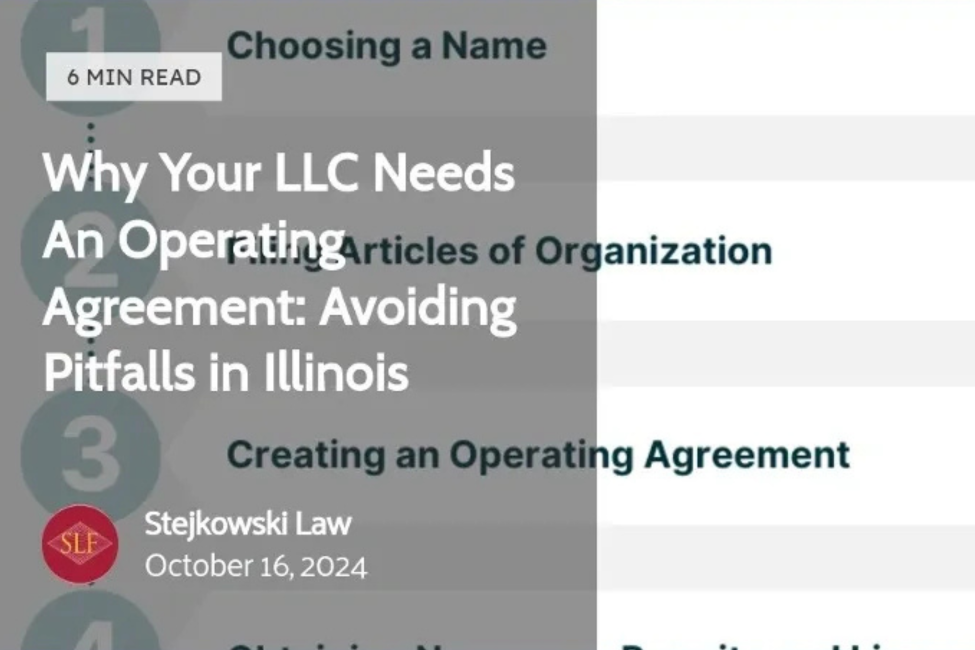What Exactly Is an Operating Agreement?
The Pitfalls of Skipping the Operating Agreement
Default State Rules Take Over: Without your own operating agreement, the Illinois Limited Liability Company Act fills in the gaps. These default rules might not align with how you want to run your business, leading to outcomes you didn’t anticipate.
Ownership Disputes: Imagine thinking you own 60% of the company profits, but your partner believes it’s a 50-50 split. Without a written agreement, resolving this can turn into a costly legal battle.
Management Confusion: Is your LLC member-managed or manager-managed? Without specifying this, roles and responsibilities can get muddled, causing operational inefficiencies and conflicts.
Financing Roadblocks: Banks and investors often ask to see your operating agreement during their due diligence. Not having one might make them hesitant to provide financing or invest in your business.
Succession Planning Woes: What happens if a member wants out or, worse, passes away? Without clear guidelines, transferring ownership can become a complicated and contentious process.
Personal Liability Risks: One reason to form an LLC is to protect personal assets. An operating agreement reinforces this separation. Without it, you risk blurring the lines and exposing yourself to personal liability.
Tax Complications: Your operating agreement can specify how you choose to be taxed. Without it, you might face unexpected tax consequences or miss out on beneficial tax treatments available to LLCs in Illinois.
Dispute Resolution Dilemmas: Disagreements happen. Without a predetermined method for resolving them, minor issues can escalate, potentially leading to litigation.
Challenges Adding or Removing Members: Bringing in new members or letting someone go should be straightforward. Without clear procedures, it can become a messy ordeal that disrupts your business.
Loss of Control Over Operations: Without specific provisions, you might find that members can compete against the LLC or share confidential information. Not exactly ideal for business growth.

So, what’s the solution? Craft a comprehensive operating agreement tailored to your business needs. Here’s what it should cover:
- Ownership Structure: Who owns what percentage and how profits are divided.
- Management Roles: Clear definitions of who handles what within the company.
- Decision-Making Processes: How decisions are made and who has the final say.
- Procedures for Change: Guidelines for adding or removing members and what happens if someone wants out.
Taking the time to draft this agreement not only shields you from potential legal issues but also shows investors, partners, and clients that you’re serious about your business.
Final Thoughts
I get it—creating an operating agreement might seem like a daunting task. But trust me, it’s a critical step in safeguarding your LLC’s future. Don’t leave your business exposed to unnecessary risks. If you’re unsure where to start, consider consulting professionals like me who can guide you through the process.
Remember, an ounce of prevention is worth a pound of cure. Protect your business now so you can focus on what really matters—growing and succeeding in your venture.


